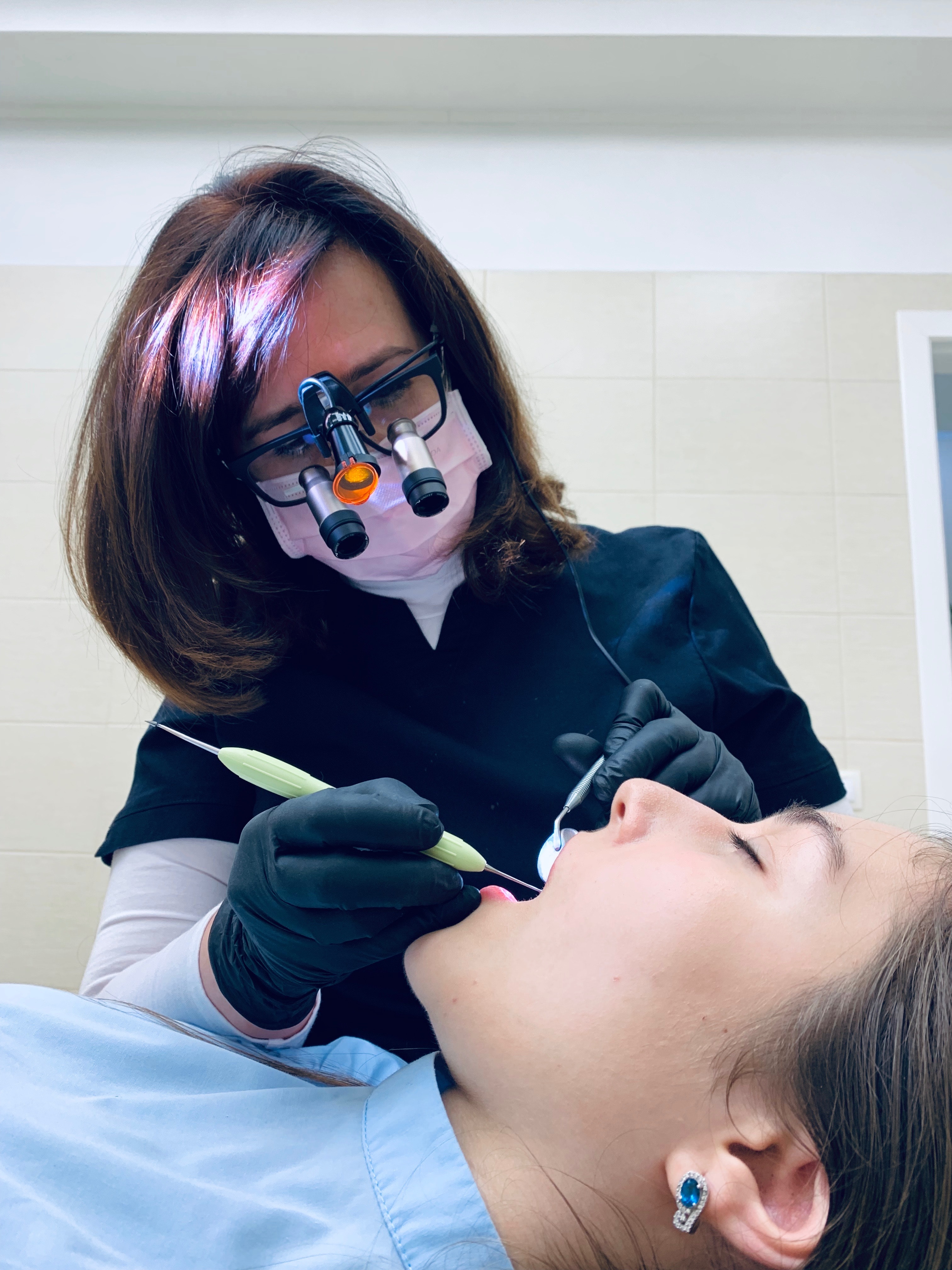Dental Malpractice Attorney
- A Dentist Explains
A good dental malpractice attorney can let you know if you have a good case to file a dental malpractice claim, if your dentist has not carried out your treatment correctly.
You can sue a dentist for dental malpractice, just like you can a medical doctor, if you have received substandard care. But you need a dental malpractice attorney to do it.
What can I claim for?
You may be able to sue your dentist for:
- any pain and suffering,
- loss of quality of life,
- loss of income,
- as well as recover dental costs for remedial treatment and future costs.
Every dentist has a legal obligation to treat you correctly, to a certain minimum standard. The lawyers call this "a duty of care".
BUT even if your dentist DOES NOT stick to this "duty of care", you do NOT automatically have a dental malpractice claim.
You have to be able to prove that you suffered some harm in some way as a direct result of the dentist's negligence.
Sometimes, this can be hard to prove, especially in a court of law. The dentist you are trying to sue will have his own attorney, paid for by his malpractice insurance. He will also have one or more "experts" who will cross- examine you in an attempt to discredit you. A dental malpractice attorney will help you to build a solid dental malpractice claim, and make sure that you get a fair hearing.
Read on to see if you can sue your dentist, and HOW TO FIND A DENTAL MALPRACTICE ATTORNEY!
 A dental malpractice attorney
A dental malpractice attorneyDental Malpractice Attorney
What sort of things might give rise to a claim?
Remember, it's not enough that the dentist did something wrong. You have to show that you suffered some harm as a result. Here are some possible claims, taking you through an imaginary treatment scenario;
1. Failure to diagnose, or wrong diagnosis.
In his initial examination, the dentist should diagnose any problems you are having, whether you are aware of the problem or not.
If you suffer harm because your dentist did not diagnose a problem in time, you may have a claim.
The most common claims are for failure to diagnose:
- Gum disease (periodontal disease), allowing it to get worse over time.
- Oral cancer, whether it's on your lip, cheek, tongue or the roof of your mouth.
- TMJ (jaw joint) conditions
 A failure to diagnose gum disease?
A failure to diagnose gum disease?Your dentist may claim that he did indeed see the problem, and even wrote it down in his notes, BUT if he didn't tell you about it, then he is negligent.
Essentially, he must do 3 things;
1. He must actually SEE a problem if you have one (ie. make the diagnosis),
2. then he has to write it down or record it in some permanent manner,
3. and then he must inform you of the problem, tell you what may happen if you ignore the problem, and then offer you appropriate treatment for the problem.
He must do ALL of these things.
Most often, he will not have seen the problem, because he didn't carry out a thorough examination. He should have
- taken X-rays of your teeth and gums,
- measured the gum condition around every tooth (and record his findings),
- carry out a full and complete examination of all your gums,
lips, tongue and palate for signs of cancer,
- and then check your jaw joint (TMJ) for any signs of limited movement, grating sounds or tenderness.
He must do all these things to escape the possible charges of failure to diagnose or negligence.
Dental Malpractice Attorney
Remember, for your case to be successful, you have to prove that you have suffered materially from the failure to diagnose or negligence of your dentist.
Sure, he may have been negligent if he didn't tell you about your gum disease, but you won't get a dime unless you can show that you suffered unnecessary harm and / or expense that could have been avoided.
For example, you were unaware of gum disease around your lower front teeth. Your dentist doesn't mention it to you, over several check-ups spanning a few years.
The teeth start to get loose. You go to another dentist, who tells you the teeth have to be taken out and replaced with implants. He mentions that he's surprised you didn't know what was happening - didn't your last dentist tell you?
So now you are in a situation where you must loose several teeth, and pay thousands of dollars for the dental implants to replace the teeth, all because your previous dentist didn't tell you about your gum disease, and didn't offer any treatment.
You have suffered a loss of teeth and a big expense because of his negligence and/or failure to diagnose gum disease.
YOU CAN SUE HIM ! Any dental malpractice attorney will take on a case like this.
 A dental malpractice attorney
A dental malpractice attorneyDental Malpractice Attorney
2. Failure to obtain informed consent.
This is the next stage in your trip through an imaginary scenario.
So, your dentist has discovered a problem, he has recorded it in his notes, and he has told you about it, told you the consequences of ignoring the problem, and suggested treatment to fix the problem. ALL GOOD SO FAR.
"Informed consent" means that the dentist must get your consent for the treatment he suggests, before he starts. Informed consent means that the dentist must explain the treatment to you in a way that you can understand.
He must tell you (without going into technical detail) what he plans to do, what the benefits will be, and then he must tell you about the risks of the proposed treatment. He must tell you what could go wrong, and what he would do for each eventuality.
For example, you may have an impacted wisdom tooth that is likely to damage the adjacent tooth if left alone. The benefit to removing the tooth will be saving the next tooth from damage.
THE RISKS of removing the wisdom tooth may include nerve damage resulting in temporary or permanent numbness of your lip or tongue, or both; damage to the adjacent tooth during the removal of the wisdom tooth, needing further treatment later; injury or trauma to your TMJ (jaw joint) during the removal procedure; infection of the extraction socket after the removal, needing antibiotics, and so on.
If he bamboozles you with technical words, you may not understand the procedure, and so any consent you give is uninformed. You don't know what it is you are consenting to!
So the dentist (or a member of his staff) should sit down with you, and go through a standard written disclaimer form that lists the benefits and all the reasonably foreseeable risks of the treatment proposed.
They must explain each piece of information, and make sure you understand each bit before getting you to sign the document. A dental malpractice attorney will check your copy of the disclaimer, to make sure it is appropriate and complete.
IF you were not informed of any risks involved, or not informed in a way that you properly understood, then the dentist does NOT have your informed consent.
IF SOMETHING GOES WRONG, you can sue him for negligence because he didn't tell you about the risks.
Say you get that wisdom tooth removed, and you get a bad infection afterwards in the socket that is very painful and you have to take time off work, then you have suffered unexpected pain AND lost money. You can sue for the unexpected suffering AND for lost income for the time off work.
 Wisdom tooth removal
Wisdom tooth removalDental Malpractice Attorney
3. Actual injury
This is the third stage in our imaginary scenario - now you have actually had the treatment recommended to solve the problem that the dentist correctly diagnosed.
BUT there's an issue with how the treatment was done.
For example, it is not normal that you leave the dentists office with a cut lip after getting a filling. The difference here over the issue of informed consent is that this is not a normal risk of getting a filling, and so is NOT mentioned in the disclaimer for informed consent.
Getting your lip cut or sliced during a filling procedure is something OUTSIDE of the normal risks, and can be seen as negligence on the part of the dentist.
You went along for your appointment to get a filling in a tooth where your dentist discovered some decay. He showed you the X-ray and the photograph, explained the cavity would get bigger if left untreated, leading to root canal or extraction, and he also warned you about the risk of treatment - that the tooth nerve might become inflamed after the filling, needing root canal treatment to save the tooth. ALL GOOD.
The appointment seems to go well, but as you are finishing up he tells you that he accidently cut your lip or tongue during the treatment. You didn't notice because you were numb.
If it's small injury, most courts would rule that it's an inherent risk of getting a filling, and that you haven't suffered significantly. No case.
BUT if the cut or injury is more severe, requiring stitches and resulting in a permanent scar, then this is different.
Depending on how severe the injury is, you may have a case to sue the dentist for suffering (pain) and permanent disfigurement, which will be more important if your job involves face-to-face contact with co-workers and clients. A dental malpractice attorney will assess if you have a case.
Dental Malpractice Attorney
4. Improper or Inadequate treatment.
This the the 4th stage of our scenario. To re-cap, by this stage the dentist has seen a problem, told you about it, explained the consequences of doing nothing, explained the benefits and risks of treatment, received your informed consent for the treatment, and has actually done the treatment.
So far, so good.
BUT THERE'S A PROBLEM WITH THE TREATMENT ITSELF.
This time it's not something unexpected like a a cut lip after a filling. It's directly to do with the treatment you have received.
In the case of the filling, the problem is with the filling. Maybe it's in a front tooth, and the new filling is the wrong color - it doesn't blend in, and everyone can see that you have a filling in your front tooth.
This isn't really grounds for a case to sue. The dentist can simply re-do the filling to correct the color.
It may seem like you have suffered, because you have to go back to the dental office again, get another shot and go through the filling procedure one more time.
Most dentists will offer to re-do the filling at no charge as a gesture of good will. But you are very unlikely to sue successfully for loss of income due to having to take extra time off work for the extra appointment.
A successful claim for improper or inadequate treatment will usually involve a more serious problem. Here are some common ones;
- A crown or bridge that does not fit properly, resulting in sensitivity, pain, decay under the crown or bridge, or TMJ problems because you can't bite properly.
- A root canal treatment that did not treat all the root canals in a tooth, resulting in recurrent infections, and possible tooth loss or total re-treatment.
- Dental implants that are in the wrong position, that come loose, or are inappropriate.
- Dentures that do not fit correctly, causing pain in the gums and TMJ issues because the dentures are too big.
- Leaving broken roots behind when extracting a tooth, without informing you, resulting in infection in the jaw bone.
- Over treatment. This is also called "improper treatment". This is where the dentist does TOO MUCH treatment for you, or treatment that is not needed, such as extracting the wrong tooth or doing root canal that is not needed.
 Dental implants in wrong position?
Dental implants in wrong position?In all these situations, if the dentist offers to re-do the treatment at no charge, then you probably don't have a case.
A dental malpractice attorney probably wouldn't advise trying to sue (unless the issue is irreversible, such as extracting the wrong tooth).
BUT it's not uncommon for a dentist to refuse to re-do the treatment AND refuse your request for a refund of fees paid, because the job is too big or complicated and time-consuming, and he would loose too much time and money if he had to re-do it all for you. He's betting that you'll just give up.
NOW you will probably have a case, because the treatment he delivered was not done properly, or not to a standard expected of most dentists.
It's important to note that dental specialists like oral surgeons, endodontists and prosthodontists will be held accountable to a higher standard of treatment than a general dentist, due to their extra training and experience.
This means that a specialist MUST give you a higher standard of treatment than could be expected of a general dentist.
Dental Malpractice Attorney
Unfortunately, nobody is perfect, and mistakes happen from time to time. Most dentists will offer to re-do treatment that has not worked out as planned, or will refund your fees.
BUT if you have suffered irreversible damage, extra expense, loss of quality of life, or loss of income, then you might be able to sue for damages.
A dental malpractice attorney will help you to build a solid case if you have suffered some harm due to a dentists' negligence, and make sure you get the best pay-out possible under the circumstances.
Here is a link to a legal website to help you find a dental malpractice attorney; Lawinfo
Below is a link to JustAnswer, where you can chat to a lawyer about your case. They CANNOT initiate a case for you, but can give advice and information.



